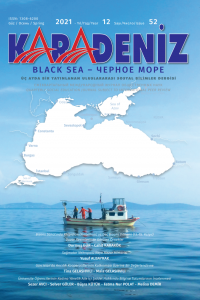LEFEBVRE VE FOUCAULT’DA MEKÂN: KURAMSAL BİR TARTIŞMA
SPACE IN LEFEBVRE AND FOUCAULT: A THEORETICAL DISCUSSION
Author(s): Mahmut KARAÇİZMELİSubject(s): Rural and urban sociology
Published by: Kültür Ajans Tanıtım ve Organizasyon
Keywords: space; spatial turn; space trilogy; representation; power; heterotopia;
Summary/Abstract: In philosophy, in undermining the time's dominance over space, the share of Henri Lefebvre and Michel Foucault, two leading thinkers of the period of "spatial turn," is undeniably huge. The way these two thinkers handled the space made a splash even after themselves. The theories of Lefebvre and Foucault remain important today, with the structure of the place contemplating space, explaining the transformations of space and urban space over time, and presenting all these discussions in a manner associated with social and political practices. Lefebvre's considerations of the space, which extends to philosophy, history, physics, metaphysics, art, psychoanalysis, linguistics, and theology, are often regarded as a reference for subsequent studies. This study investigated the literature of the spatial turn period, explaining Lefebvre's concepts, which would become common in later periods as the "spatial trilogy." The study discussed the "perceived space" associated with everyday practices, the "designed place" where the power fictionalized, with virtual-actual extensions, and the "inhabited space," which Lefebvre called a "space of representation," which refers to differences and resistances associated with the concept of heterotopy. In the study, Lefebvre's these concepts are interpreted by comparing them to the concept of the heterotopia by Michel Foucault, another important thinker of the Period of Spatial Turn. In Foucault, heterotopic spaces with an emphasis on differences, out-of-the-norm, and ephemerality are exemplified by their physical extensions. The aim of this study is to contribute to the space literature by analyzing the differences, similarities, and concepts in which these two thinkers, who have expressed ideas about space in similar periods and inspired many academic studies in social sciences, philosophy, and architecture, have viewed the space.
Journal: Karadeniz Uluslararası Bilimsel Dergi
- Issue Year: 2021
- Issue No: 52
- Page Range: 166-178
- Page Count: 13
- Language: Turkish

